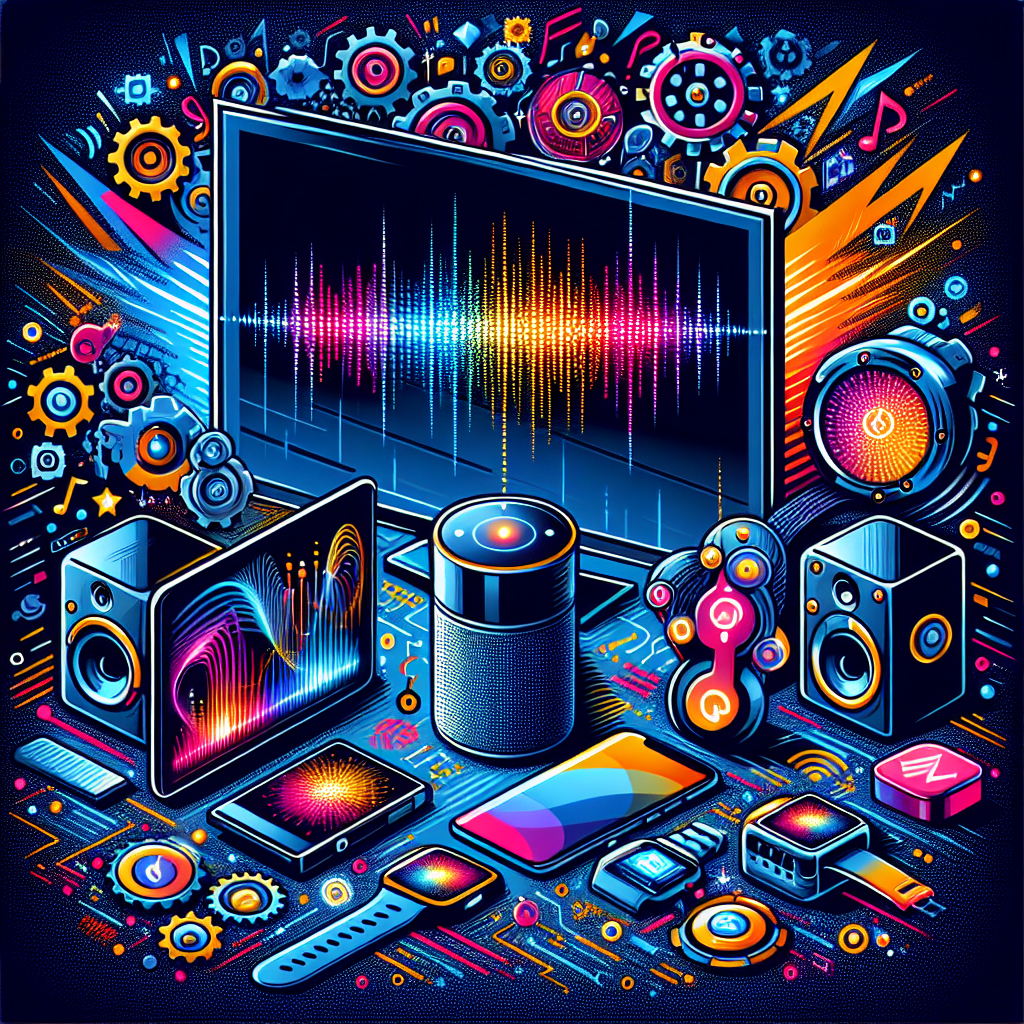AI-Powered Voice Assistants in Entertainment Devices
In recent years, artificial intelligence (AI) has made significant advancements in various industries, including entertainment. One of the most notable applications of AI in entertainment devices is the integration of AI-powered voice assistants. These voice assistants, such as Amazon’s Alexa, Google Assistant, and Apple’s Siri, have revolutionized the way we interact with our devices and access entertainment content.
AI-powered voice assistants have become a ubiquitous feature in smart entertainment devices, including smart speakers, smart TVs, and streaming devices. These voice assistants are designed to understand and respond to natural language commands, making it easier for users to control their entertainment devices and access a wide range of content.
One of the key benefits of AI-powered voice assistants in entertainment devices is their ability to provide personalized recommendations and suggestions based on the user’s preferences and viewing habits. For example, a smart TV equipped with a voice assistant can recommend movies and TV shows based on the user’s past viewing history, making it easier for users to discover new content that they may enjoy.
Additionally, AI-powered voice assistants can help users navigate through complex menus and settings on their entertainment devices. By simply using voice commands, users can change channels, adjust volume, search for content, and even control smart home devices that are connected to their entertainment system.
Furthermore, AI-powered voice assistants can enhance the overall entertainment experience by providing real-time information and updates. For example, users can ask their voice assistant for the latest news headlines, weather updates, sports scores, and more, without having to interrupt their viewing experience.
In the realm of gaming, AI-powered voice assistants are also making a significant impact. Gaming consoles such as the Xbox One and PlayStation 4 are equipped with voice assistants that allow users to control games and interact with other players using voice commands. This hands-free approach to gaming has revolutionized the gaming experience for many users, making it more immersive and interactive.
Moreover, AI-powered voice assistants are also being integrated into virtual reality (VR) and augmented reality (AR) devices, further enhancing the immersive experience for users. By using voice commands, users can interact with virtual environments, control virtual characters, and access information and content in a more natural and intuitive way.
Despite the numerous benefits of AI-powered voice assistants in entertainment devices, there are still some concerns and challenges that need to be addressed. One of the main concerns is privacy and data security, as voice assistants are constantly listening to and analyzing user’s conversations. There have been instances where voice assistant devices have recorded and stored private conversations without the user’s consent, raising questions about data privacy and security.
Additionally, there are concerns about the accuracy and reliability of AI-powered voice assistants, as they may not always understand complex or nuanced commands. Users may also experience frustration when the voice assistant fails to accurately interpret their commands, leading to a less than optimal user experience.
Despite these challenges, AI-powered voice assistants continue to gain popularity in entertainment devices, as they offer a convenient and intuitive way for users to interact with their devices and access content. As technology continues to evolve, we can expect to see even more advanced AI-powered voice assistants that are capable of understanding and responding to a wider range of commands and queries.
FAQs
Q: What are some of the popular AI-powered voice assistants in entertainment devices?
A: Some of the popular AI-powered voice assistants in entertainment devices include Amazon’s Alexa, Google Assistant, and Apple’s Siri.
Q: How do AI-powered voice assistants enhance the entertainment experience?
A: AI-powered voice assistants enhance the entertainment experience by providing personalized recommendations, simplifying device navigation, and offering real-time information updates.
Q: Are there any concerns about privacy and data security with AI-powered voice assistants?
A: Yes, there are concerns about privacy and data security with AI-powered voice assistants, as they are constantly listening to and analyzing user conversations. Users should be mindful of the data privacy policies of the voice assistant device they are using.
Q: How accurate and reliable are AI-powered voice assistants in understanding user commands?
A: While AI-powered voice assistants have improved in accuracy and reliability, there are still instances where they may struggle to understand complex or nuanced commands. Users may experience frustration when the voice assistant fails to accurately interpret their commands.
Q: What are some of the future advancements we can expect in AI-powered voice assistants in entertainment devices?
A: In the future, we can expect to see even more advanced AI-powered voice assistants that are capable of understanding and responding to a wider range of commands and queries. Additionally, we may see advancements in natural language processing and voice recognition technology, further enhancing the user experience.

